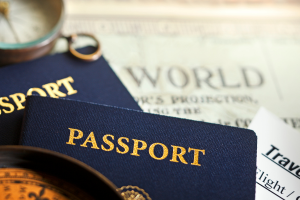
Americans contemplating life overseas face unique challenges in estate planning, as global living introduces complexities in taxation and legal obligations. Understanding these intricacies is vital for those relocating permanently or owning property in foreign lands, especially given the U.S.’s distinct approach to expatriate taxation.
Navigating Taxation for U.S. Expatriates
A critical concern for Americans abroad is the potential for double taxation, a reality stemming from the U.S.’s citizenship-based tax system. This system can result in expatriates facing estate taxes in both the U.S. and their resident country, particularly if their estate surpasses the U.S. exemption limit, currently set at $12.92 million as of 2023.
Mitigating the Impact of Double Taxation
There are several strategies to address the challenge of double estate taxation. Utilizing foreign death tax credits and forming various types of trusts can offer some relief, although the recognition and effectiveness of these trusts can vary across different countries.
The Importance of International Wills
For Americans with assets in multiple countries, a standard U.S. will might not suffice. International wills, under guidelines such as the Hague and the Washington Convention, can provide a more universally recognized legal structure, accommodating the laws of multiple nations.
Guardianship and Power of Attorney Across Borders
Living abroad necessitates careful planning around guardianship for minor children and the establishment of powers of attorney in each country of residence. These measures are crucial for ensuring smooth asset management and decision-making in healthcare and other personal matters.
For Americans residing abroad, aligning their estate plans with their international lifestyle is crucial. To navigate these complexities and tailor an estate plan to your specific needs, contact the Law Office of Charles L. Kurmay at (203)380-1743 for expert legal guidance.




